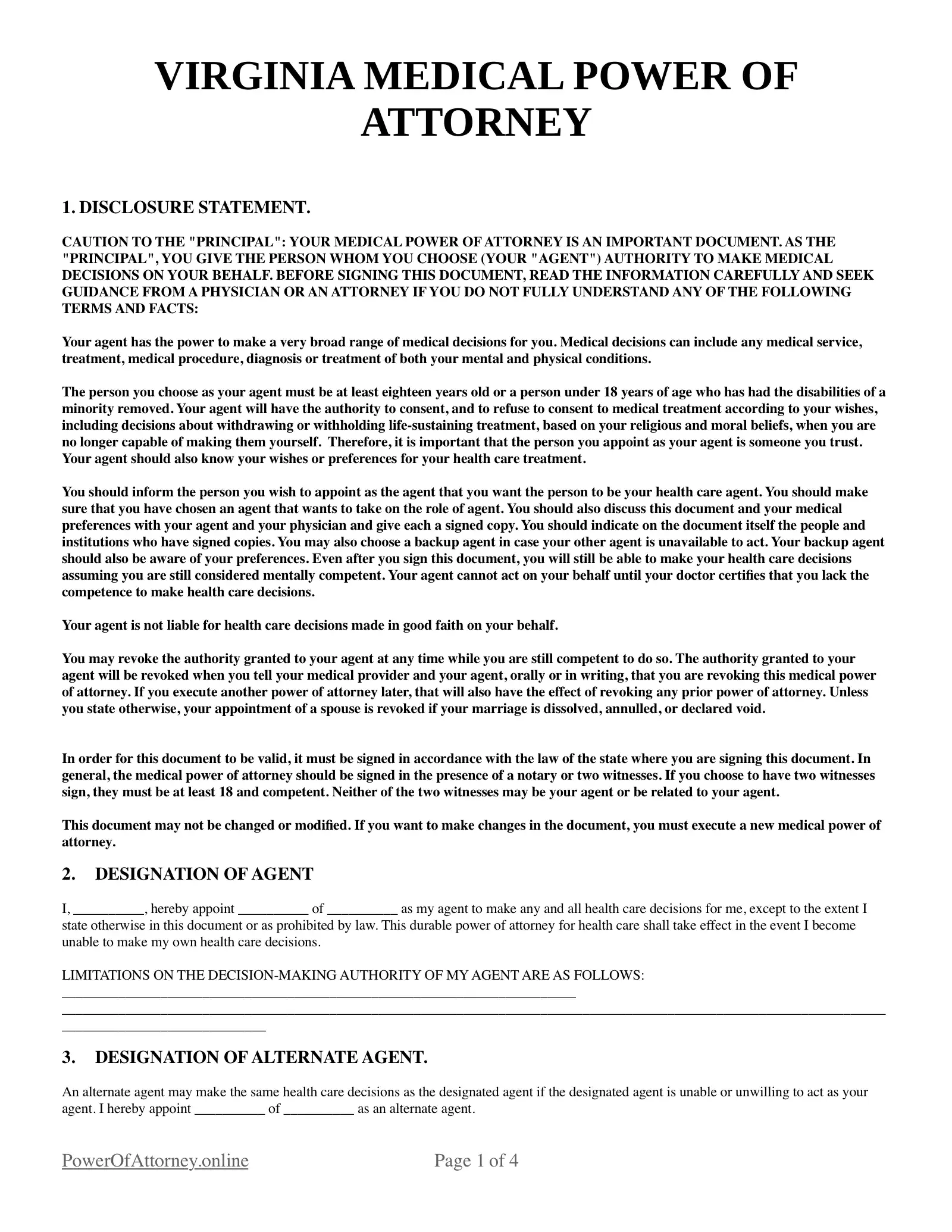Free Virginia Medical Power of Attorney Forms
If you live in Virginia, a medical power of attorney (MPOA) allows you to choose someone to take action on your behalf.
Also called an Advance Directive or Health Care Power of Attorney, it will enable a principal to appoint an agent to make healthcare decisions if they cannot communicate their wishes.

Virginia Medical Power of Attorney Laws
The state of Virginia has several laws that allow individuals to grant permission to their chosen agent for a medical POA. The Code of Virginia’s Article 8, or the Health Care Decisions Act, defines the procedure and limitations of getting one.
Those who are terminally ill can sign a medical POA that permits their chosen agent to make decisions for them. This advance directive under this act can be a signed or oral document, as long as it is done in front of witnesses (Code of Virginia - Article 8. Health Care Decisions Act.)
The declarant allows the chosen agent to make decisions regarding the health care they will receive if they become incapable of making a decision due to their medical condition.
These decisions include life-prolonging procedures and do not resuscitate orders if and when suggested by the attending physician. It also specifies whether the principal can give the agent authority to allow admission to a facility if they are no longer capable of making the decision.
The act also states how physicians can help patients outline an advance directive. It covers the proper procedures and notices for making advance directives (Code of Virginia § 54.1-2983)
Signing Requirements in Virginia
A medical POA must be signed in the presence of two witnesses. In Virginia, you need the declarant or principal’s signature, the agent and a secondary agent given the authority to act on behalf of the declarant, and two witnesses.
The Act also specifies that the declarant or principal can specify the health care they want to authorize and the anatomical gifts they may want to make after death (Code of Virginia § 54.1-2983).
How To Write a Medical POA in Virginia
You can write a medical POA using a printable and downloadable PDF document form. This template outlines all the critical details you must fill out and establish.
Here’s a step-by-step guide to writing a medical POA:
1. Identify the roles
Creating a medical POA requires the selection and identification of the principal or declarant, the agents or the attorney-in-fact, and the health decisions the principal wants to make once they are no longer capable.
Often patients are encouraged to choose trusted family members to act as agents when they become incompetent due to disease or illness.
2. Choose your agents
In Virginia, you need at least two agents who can act on your behalf. The nature of a medical emergency and availability require more than one agent identified in the POA.
Only the principal can choose the agents, and only the main agent has permission to make decisions.
3. List the agent’s powers
The principal can choose the limit by which the agent acts. The POA can cover treatments, surgeries, health care decisions, admission into health care facilities, and life and death decisions.
4. Sign the POA form
The principal and two witnesses can sign with their names and residential addresses.
5. Use the POA when needed
Healthcare facilities and staff require all medical attorneys-in-fact to show the POA that outlines their responsibilities. Agents must carry a copy of the filled and signed document before they can make decisions on the principal’s behalf.